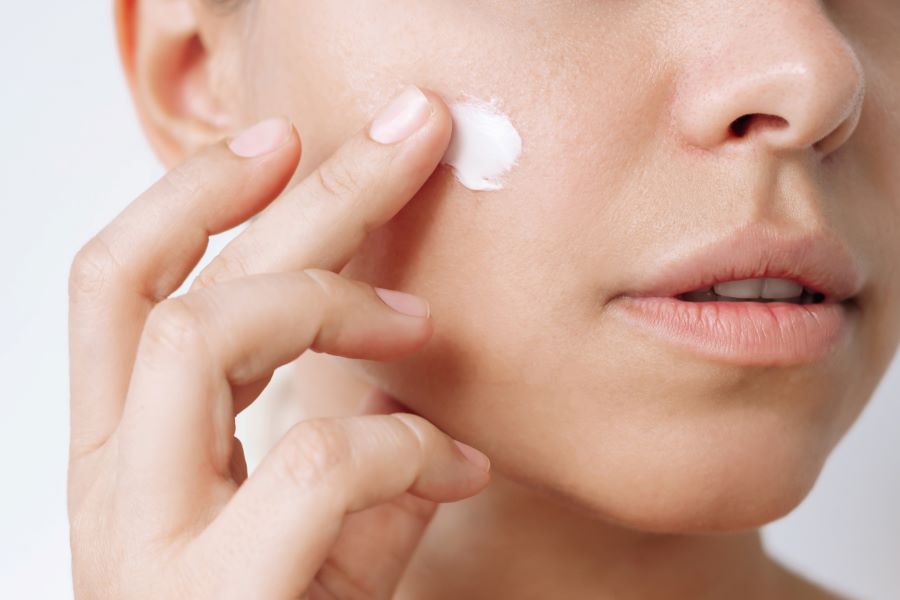What to Know About Oil-Based vs. Water-Based Cleansers
This article explores the pros and cons of oil-based and water-based cleansers, highlighting how each type works, their effectiveness, and potential drawbacks. By outlining key differences, it helps identify which option better suits various skin types and needs.

How Do Oil-Based Cleansers Work?
Oil-based cleansers operate on the principle that “like dissolves like,” making them particularly effective at removing oil-soluble impurities from your skin. These facial cleansers excel at breaking down makeup, sunscreen, excess sebum, and other oil-based products that can clog pores throughout the day. The formulation typically includes various oils such as jojoba, coconut, or mineral oil, along with emulsifiers that help the product rinse away with water.
When massaged onto dry skin, oil-based cleansers penetrate deeply into pores, dissolving stubborn impurities without stripping the skin’s natural moisture barrier. This gentle yet thorough cleaning action makes them suitable for removing waterproof makeup and long-wearing cosmetic products that water-based alternatives might struggle to eliminate completely.
What Makes Water-Based Cleansers Different?
Water-based cleansers rely on surfactants—ingredients that reduce surface tension between oil and water—to lift away dirt, sweat, and water-soluble impurities from the skin’s surface. These skin cleansing products typically contain ingredients like sodium lauryl sulfate or gentler alternatives like cocamidopropyl betaine, combined with water as the primary base.
The foaming action characteristic of many water-based cleansers helps remove daily environmental pollutants, bacteria, and surface-level debris. These facial cleansers work best when applied to damp skin, where the surfactants can activate properly to create the cleansing action that removes impurities and refreshes the skin.
Which Cleanser Type Suits Your Skin?
Different skin types respond better to specific cleansing approaches, making it important to match your cleanser choice with your skin’s particular needs. Dry and sensitive skin types often benefit more from oil-based cleansers because these formulations are less likely to disrupt the skin’s natural protective barrier and can provide additional moisture during the cleansing process.
Oily and acne-prone skin might initially seem like it would benefit from water-based cleansers, but many dermatologists actually recommend oil-based options for these skin types as well. The deep-cleaning action of oil-based cleansers can help regulate sebum production and prevent clogged pores more effectively than harsh water-based formulations that might trigger increased oil production.
How to Build an Effective Skincare Routine
Incorporating the right facial cleansers into your skincare routine requires understanding when and how to use each type effectively. Many skincare experts recommend the double-cleansing method, which involves using an oil-based cleanser first to remove makeup and oil-soluble impurities, followed by a water-based cleanser to address any remaining debris and provide a thorough cleanse.
For morning routines, a single water-based cleanser often suffices since your skin hasn’t been exposed to makeup or significant environmental pollutants overnight. Evening routines typically benefit from the more thorough approach of oil-based cleansing, especially if you wear makeup, sunscreen, or live in an urban environment with higher pollution levels.
Popular Cleansing Products and Price Ranges
The market offers numerous options for both oil-based and water-based skin cleansing products across various price points and formulations. Understanding typical pricing can help you budget for quality products that meet your skincare needs.
| Product Type | Price Range | Key Ingredients | Best For |
|---|---|---|---|
| Drugstore Oil Cleansers | $8-$25 | Mineral oil, petrolatum | Budget-conscious users |
| Mid-Range Oil Cleansers | $25-$60 | Botanical oils, vitamin E | Most skin types |
| Premium Oil Cleansers | $60-$150 | Rare botanical extracts | Luxury skincare routines |
| Drugstore Water Cleansers | $5-$20 | Basic surfactants | Simple cleansing needs |
| Mid-Range Water Cleansers | $20-$45 | Gentle surfactants, botanicals | Sensitive skin |
| Premium Water Cleansers | $45-$120 | Advanced formulations | Professional-grade care |
Prices, rates, or cost estimates mentioned in this article are based on the latest available information but may change over time. Independent research is advised before making financial decisions.
The choice between oil-based and water-based cleansers ultimately depends on your individual skin needs, lifestyle, and personal preferences. Both types of facial cleansers can play valuable roles in maintaining healthy skin when chosen and used appropriately. Consider starting with one type and gradually incorporating the other if you find that your skin would benefit from a more comprehensive cleansing approach. Remember that consistency in your skincare routine often matters more than the specific products you choose, so select cleansers that you enjoy using and that work well with your skin’s unique characteristics.
This article is for informational purposes only and should not be considered medical advice. Please consult a qualified healthcare professional for personalized guidance and treatment.




